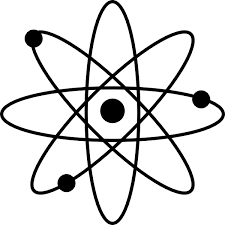 WHAT???
WHAT???
Who said that? Well, it was the corporate slogan of E. I. DuPont Nemours for decades. Nowadays, however, mention the word ‘chemicals’ to some gardeners, and they go into apoplectic shock. The use of chemicals in gardens is one of their biggest no-nos, and people who do use them are looked down upon as irresponsible by those who don’t. The buzz word in gardening now is ‘organic’.
Take fertilizers, for example. The three main ingredients are Nitrogen, Phosphorous, and Potassium. All three are found in nature, but it’s unlikely that all three will be found together in the concentrations we want, so we use commercial fertilizers.
Typical organic fertilizers include mineral sources, animal waste, including blood, bones and feathers, from meat, fish and poultry processing, manure, slurry, and guano, treated sewage, and plant based fertilizers, such as compost. Wow! ‘Organic’ takes on a whole new meaning, doesn’t it? Non-organic fertilizers are made in chemical plants.
I just purchased a ‘food cycler’ kitchen appliance that reduces over a liter of kitchen waste to less than a few ounces nutrient-rich dried bran look-alike. Even poultry bones and shrimp peelings! I have a septic system and getting rid of kitchen waste with a sink disposer isn’t recommended. This appliance solves the problem of leaky, smelly garbage bags. The resulting ‘bran’ is great fertilizer and I put it into my containers and flower beds. Can’t get much more organic than that.
But I’m also comfortable using just about any commercial fertilizers; my choices are based on content and price. Actually, if a chemical is found in nature and the same chemical is manufactured, there is no difference between them.
The human body is constantly bombarded with chemicals. More manufactured stuff than natural. It’s no wonder the average life span has doubled in the last 100 years or so. We start being preserved at birth.
But we’re talking about chemicals in horticulture. That’s a constantly evolving issue. It wasn’t that long ago that DDT was the insecticide of choice, both in agriculture and home use. After being heavily used for decades, it was banned totally in 1973.
Roundup (glyphosate) is supposedly the most benign herbicide since it affects the plant, not the soil, but it seems to be on its way out and will likely be banned sometime soon. It has already been banned in some 21 countries.
But there are some organic alternatives. Vinegar, for example, is a very effective herbicide. Bet you’re surprised to learn that vinegar is made from ethanol, the same additive used in gasoline! So is it ‘organic’ or not? Beats me.
Corn gluten has been touted as an effective organic pre-emergent herbicide, but even its inventor and patent holder acknowledges that because corn gluten is 10% nitrogen, it actually encourages the growth of any weeds already there. So why on earth would you use a pre-emergent herbicide on soil that has no weeds? Duh! Too, it’s very expensive and several applications are usually recommended.
I knew there’d be a catch!
It seems, though, that concern about using chemicals in horticulture is justified. Chemicals used to aid to in the growth or bloom of plants seem to be safe, but ‘cides’ (those with ‘cide at the end of their name: i.e. herbicide, pesticide, insecticide, etc.) all mean to kill something. Maybe you. Although many herbicides are selective, killing only dicots (broadleaf plants), or monocots (grass or grass-like plants), most are non-selective, killing all or most everything it touches.
As a home gardener, however, I believe it is highly unlikely that you will come down with an incurable disease by the occasional use of those products. Agricultural workers and pollinators are most at risk.
That being said, it would be prudent not to reach for a chemical solution to a problem as a first response.
You can buy a supply of ladybugs to control aphids, mealybugs and other insect pests. They don’t seem to hang around very long in my garden, but they’re great fun to watch while they’re there. Remember the ditty “Ladybug, ladybug, fly away home”? Mine flew.
My favorite remedy for insect pests and diseases is soap and water and a sharp spray from a hose. Horticultural oils are effective, too. Reminds me of my own body care routine – soap and water, showers and moisturizers.
Happy Gardening!







